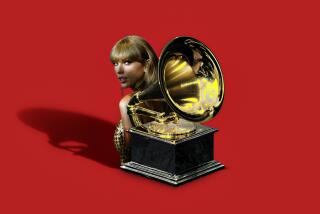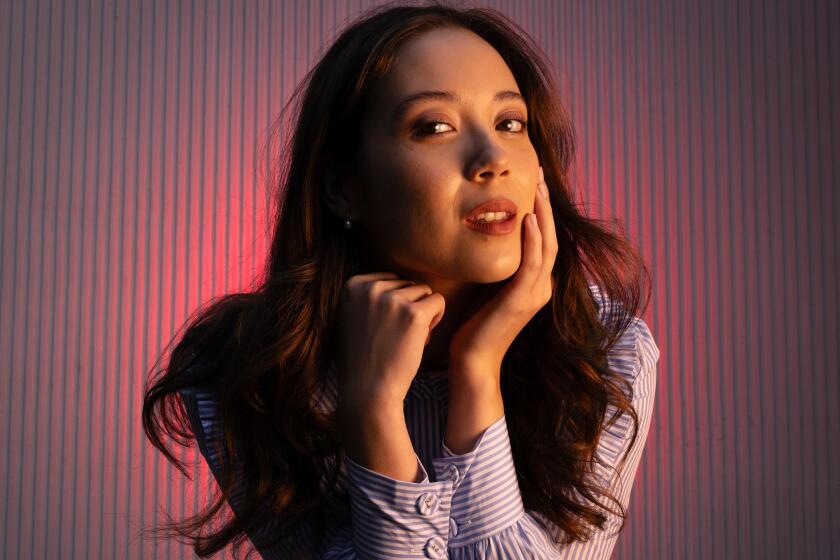At 2020 Grammy Awards, bright new stars bail out the old-boys-club Recording Academy
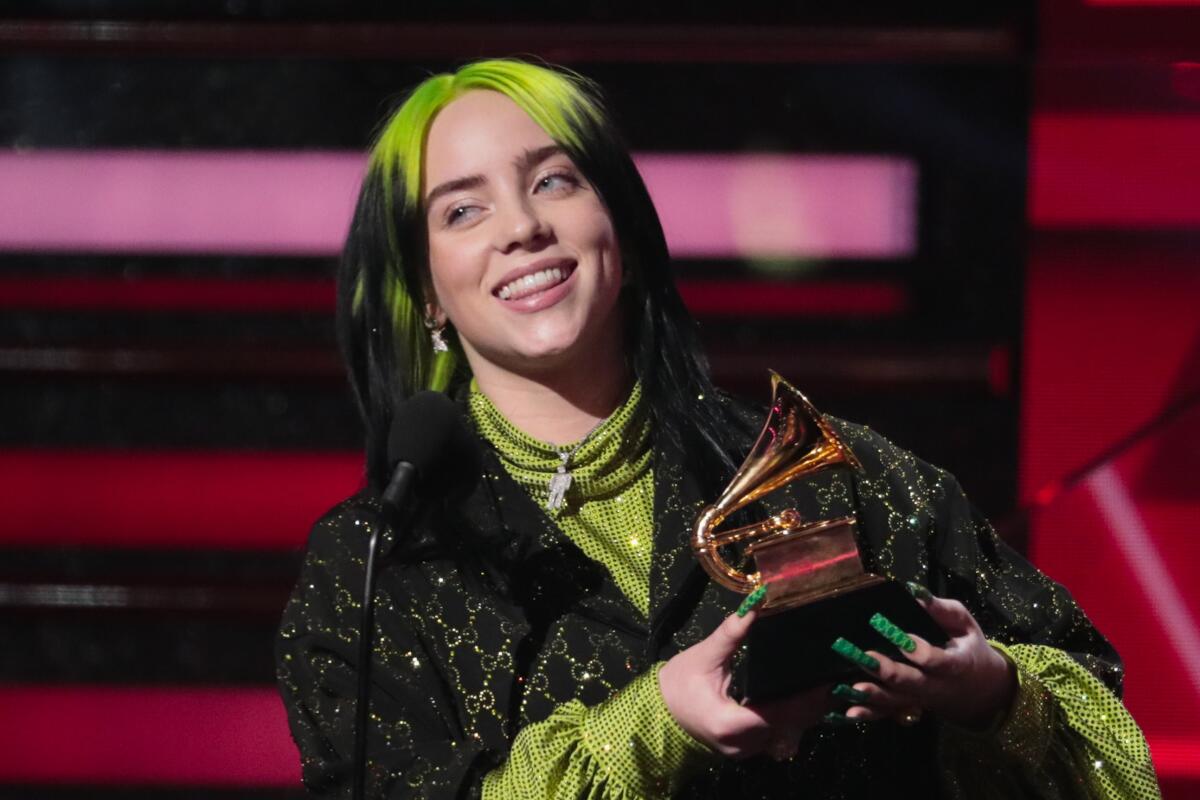
- Share via
Outside, fans mourned the passing of a sports legend — while inside the music industry anointed a new superstar.
That was the scene Sunday night at Staples Center, where the Recording Academy presented the 62nd Grammy Awards just hours after Lakers legend Kobe Bryant died in a helicopter crash that sent fans flocking to the downtown arena he once called home.
At the Grammys, it was another local hero, 18-year-old Billie Eilish, who made history, becoming just the second artist in history (Christopher Cross was the first, in 1981) to sweep all four of the show’s major categories of album, record and song of the year, along with best new artist, for work from her major-label debut, “When We All Fall Asleep, Where Do We Go?”
Raised in Highland Park by artsy parents who home-schooled her and her older brother (with whom she records her music), Eilish is a new kind of Grammy champ: not a comforting revivalist or a tasteful young fogey but a skilled eccentric making weird, whispery pop songs about “depression and suicidal thoughts and climate change,” as her brother, Finneas, described them when the two came onstage to accept the album trophy.
Later, the singer picked up the last of her awards without comment, as though she couldn’t make sense of what had just happened.
Yet the Eilish siblings weren’t the only fresh talents who won at the Grammys.
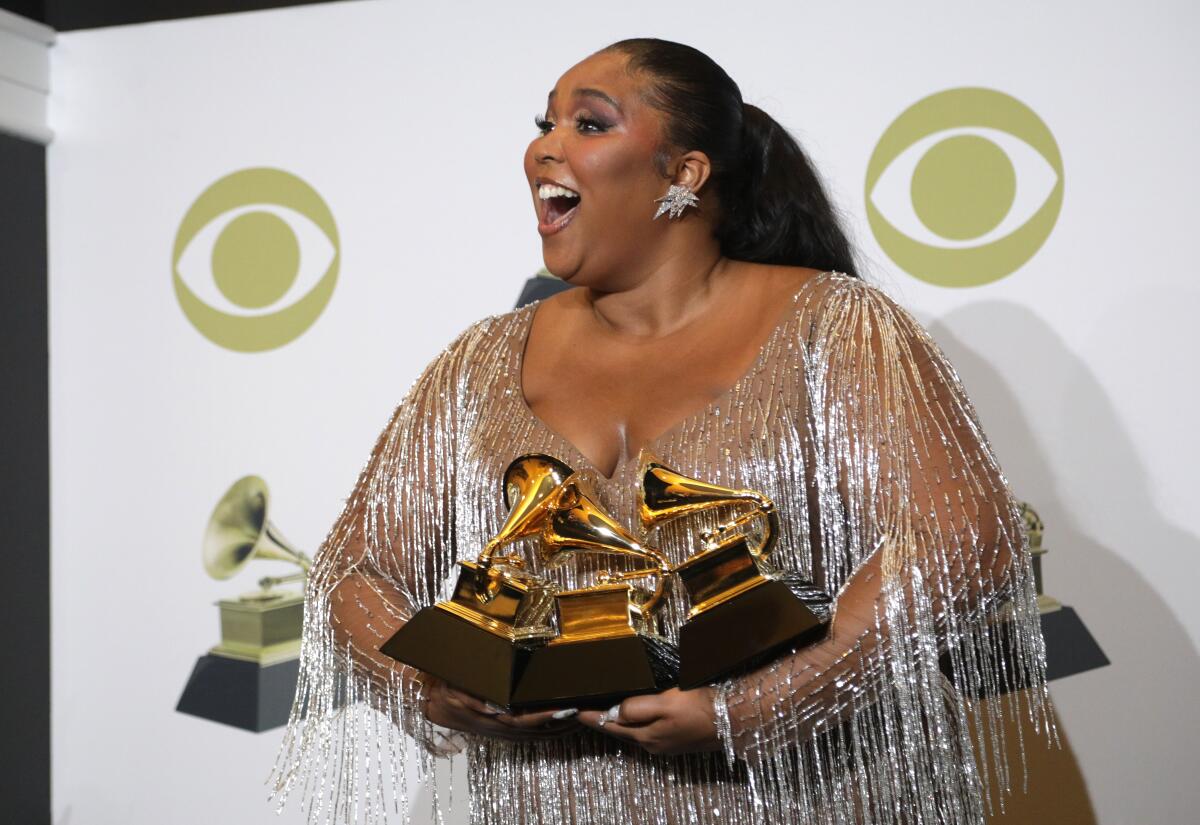
Lizzo, who’d also been nominated for the four big prizes, took three lesser awards, including pop solo performance for her body-positive streaming smash “Truth Hurts,” which she said in her speech was designed to “liberate” people. And Lil Nas X, the country-rap phenomenon behind last year’s unavoidable “Old Town Road,” won two Grammys, including pop duo/group performance.
Performances in the 3 1/2 hour show similarly emphasized an idea of newness that would once have seemed unimaginable for the famously fusty — and recently embattled — Recording Academy.
Tyler, the Creator did his twisted soul songs “Earfquake” and “New Magic Wand” while herky-jerking his body around a stage ravaged with digital flames; Lil Nas X gathered some of the acts with whom he made “Old Town Road” remixes — including BTS, Diplo and Mason Ramsey (better known as YouTube’s Walmart yodeling kid) — for a very busy version of that song that felt a bit like the internet come to life.
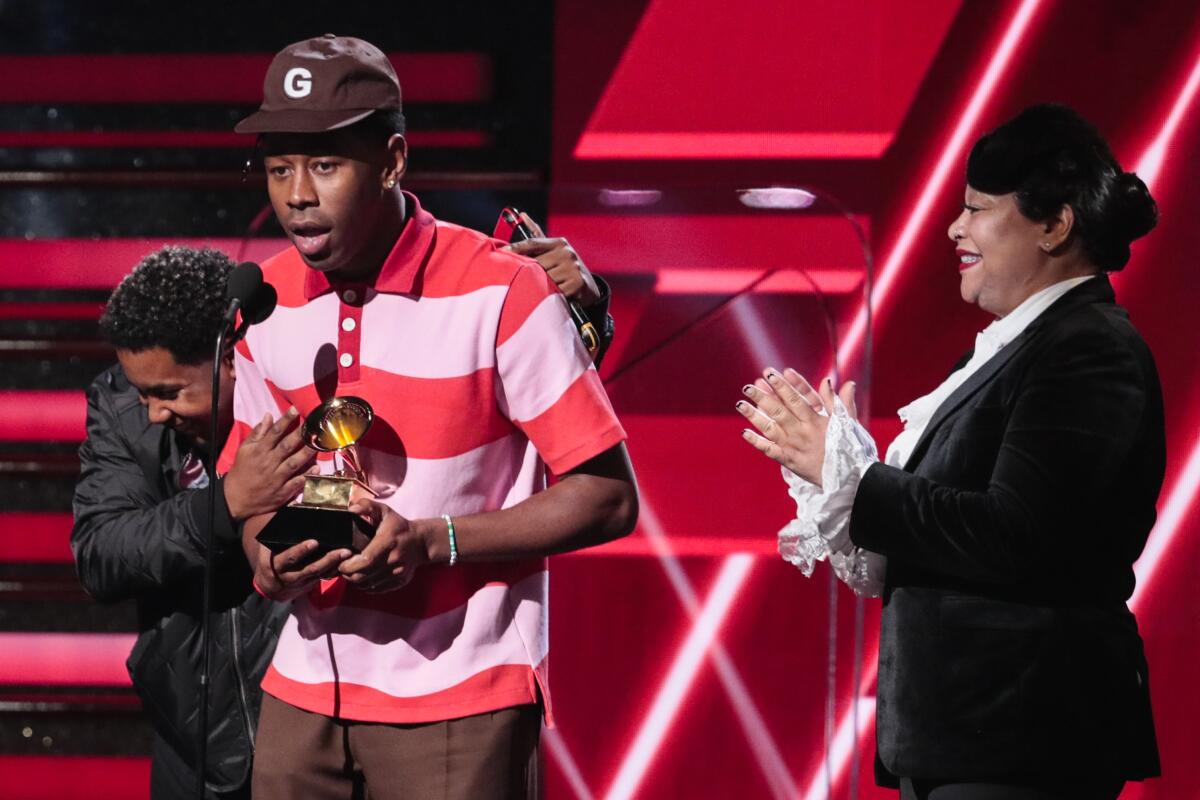
There were plenty of veterans too, of course, such as Tanya Tucker, whose “While I’m Livin’” was named best country album; Aerosmith, who brought out Run-D.M.C. to revive their influential rock-rap “Walk This Way”; and Bonnie Raitt, who toasted the roots-music great John Prine, a lifetime-achievement honoree, with a bit of his classic “Angel from Montgomery.”
The first line of that song, in case you forgot: “I am an old woman.”
What was mostly missing were the established A-listers that sit between the rookies and the geezers. Taylor Swift, Beyoncé, Jay-Z, Drake, Rihanna, Lady Gaga, Adele — none were at the Grammys this year, an indication perhaps of the reputation for white-male conservatism that the academy was no doubt looking to repair with Sunday’s winners.
Indeed, before news of Bryant’s death broke, many expected the show to bear some trace of the ongoing battle between the academy and Deborah Dugan, the recently ousted chief executive who’s gone public with claims of corruption and gender discrimination at the organization.
Alicia Keys, who served as host, seemed to invoke the drama in her opening monologue when she spoke of artists’ need for safety. For the most part, though, the conflict went unmentioned, even if Lizzo’s shutout in the major categories — not unlike Jay-Z’s a couple of years ago — is likely to spawn further discussion about the Grammys’ race problem.
Bryant’s death loomed large in the show, with warm words of remembrance from Keys and John Legend, who joined DJ Khaled for a tribute to the late Nipsey Hussle that doubled as a moment to remember the star Laker.
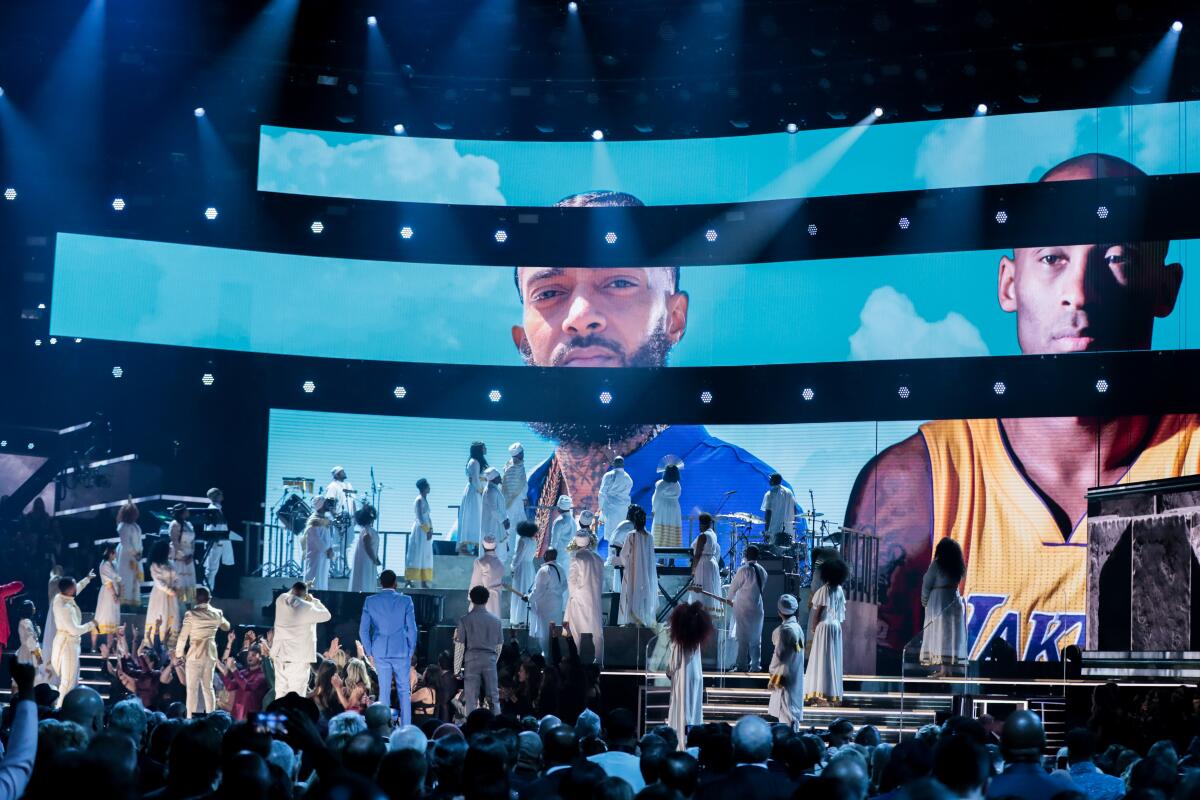
Two pop stars of the relatively old guard who did turn up were Ariana Grande, who linked her Rodgers & Hammerstein-sampling “7 Rings” with a lush rendition of “My Favorite Things,” and Demi Lovato, who delivered “Anyone,” a powerful ballad about her recent struggles with mental illness.
Yet those performances felt less aligned with the night’s central thrust than Lizzo’s show-opening medley of “Cuz I Love You” and “Truth Hurts” — a sort of woke reclamation of old-school razzle-dazzle — or a precisely detailed electro-flamenco display from the breakout Spanish singer Rosalía.
Also disconnected, though not at all unwelcome, was a deeply sensual Prince tribute by Usher, who channeled quite a bit of what made the late pop genius so special — even if the curious timing (more than three years after Prince’s death) left you wondering if the sequence only happened because the Recording Academy had an upcoming Prince-themed special to plug.
Usher was joined by FKA twigs, the adventurous British art-soul singer and dancer who did an impressive pole routine as Usher sang “When Doves Cry.” Watching the performance, you kept expecting FKA twigs to join in on vocals too, yet that never happened.
On Twitter later she said that “of course” she wanted to sing, but that she hadn’t been asked to — a throwback, it seemed, to the academy’s bad old days. Except that she added, “Hopefully in the future.”
More to Read
The biggest entertainment stories
Get our big stories about Hollywood, film, television, music, arts, culture and more right in your inbox as soon as they publish.
You may occasionally receive promotional content from the Los Angeles Times.


